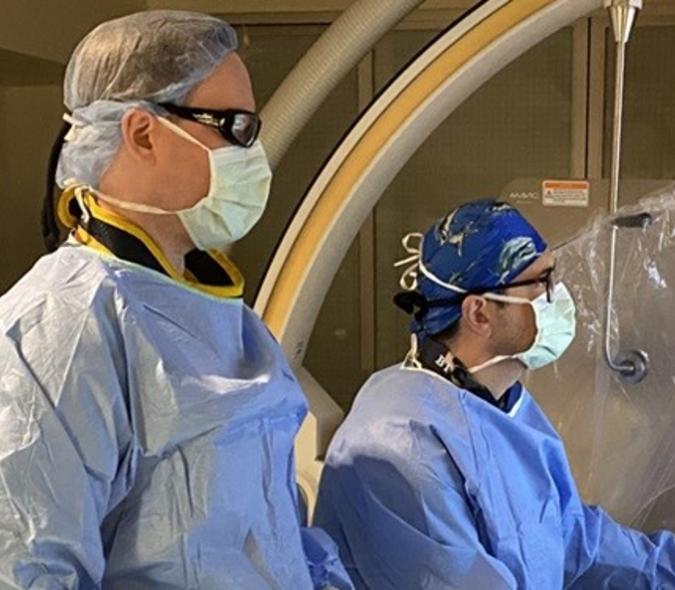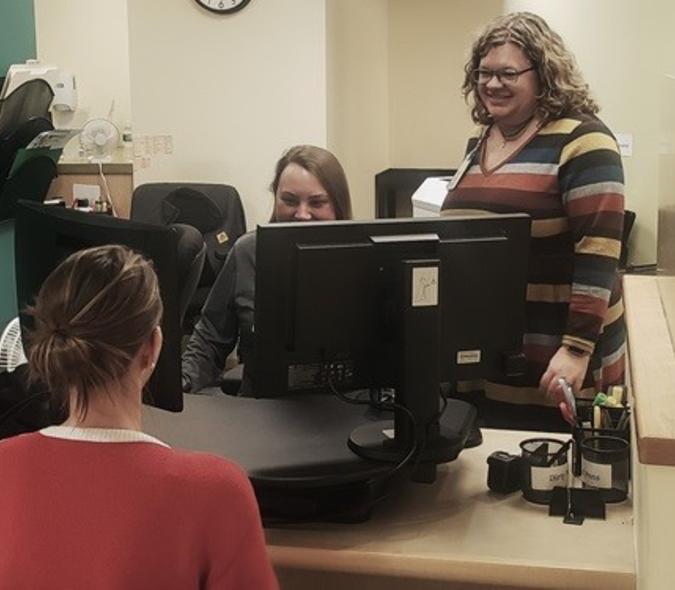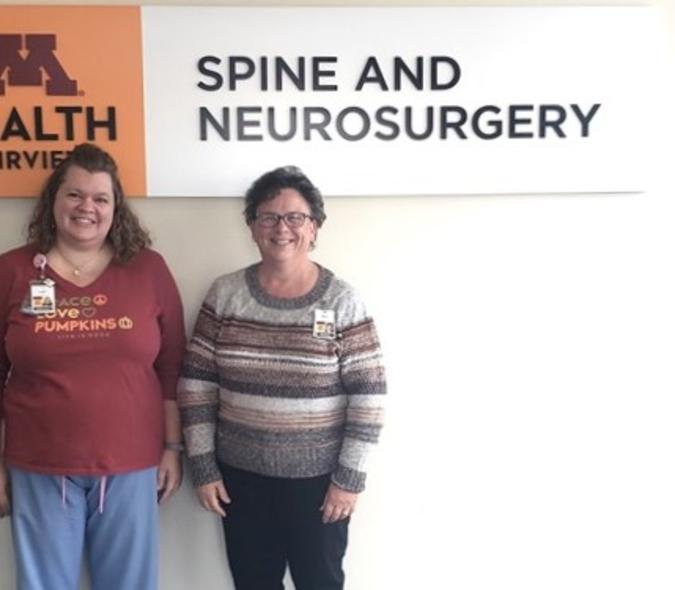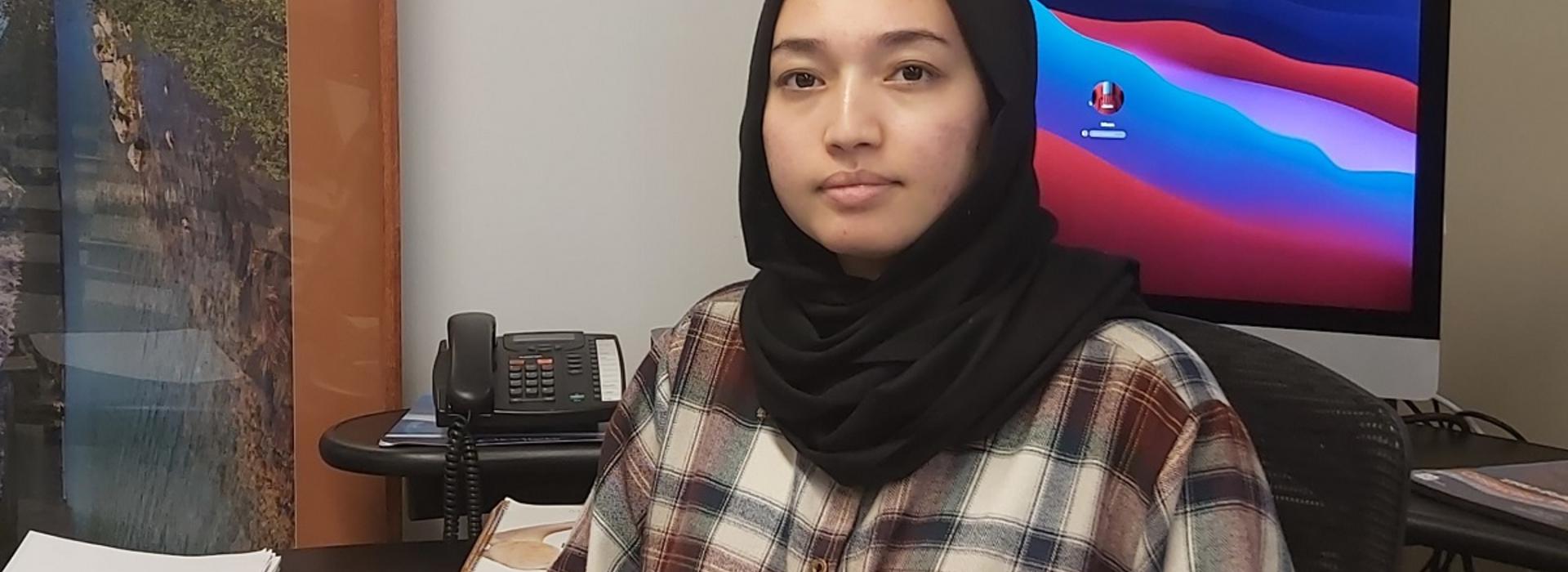
Young Afghan refugee physician views her opportunity at the U of M as miraculous
When neurosurgeon Andrew Grande MD, offered Atefa Tavasoli a neuroanatomy fellowship earlier this year, she thought it was a miracle.
Atefa is a 25-year-old Afghan refugee who completed her medical training at Kabul Medical University in 2021. The day the U.S. military left Kabul, she was working as an intern in a local hospital. When the Taliban entered the city, Atefa was told to go home and hide because she was a female physician.
Forced to flee
Her family, which included herself, her parents, and four siblings, was forced to flee the country. “We were all in shock,” said Atefa. “Those who wanted to leave had to be ready at any moment. One day, someone came to our door and said we had 15 minutes to prepare for leaving.”
She and her family were flown to a military base in Qatar where they stayed for several months. They were then flown to a military base in New Jersey for an additional three months, living in a tent with 700 other refugees. When they arrived in this country, Atefa and her family thought about being relocated to places like Virginia, New York, or Washington, DC, where there are Afghani communities. “We don’t have any other family members in this country … we just wanted to go to a place that was able to accept refugees from Afghanistan,” she said. “When we were told that we were going to Minnesota, I thought, ‘Congratulations, we’re going to the freezer.’ During our first winter in the state, my eyelashes froze for the first time in my life.”
Atefa learned that her medical degree did not guarantee that she could practice medicine in this country. She would have to pass the United States Medical Licensing Examination (USLME) to verify her credentials. And because neither her father nor her mother speaks English, she knows that she must also get a job to help support her family. She wants to stay in medicine to do that.
Vital connections
During a three-month stay in a hotel in Bloomington, MN, Atefa connected with an education counselor. “She said she had a friend who is a retired professor from the U of M,” she said. “These connections went through various people until finally someone said they knew Dr. Grande. When he and I connected, he said he had an open fellowship position in his neuroanatomy lab. I submitted my resume and letter of interest, and he accepted me.”
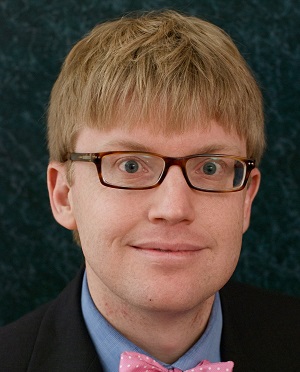
According to Grande (pictured here), Atefa is focusing on completing her USLME tests and participating in neuroanatomy research and publications. “She is also integrating into our neurosurgery group here and working with our residents on clinical publications,” he said. “One challenge for her and her family is that they have nothing, and she will need to begin working soon to earn enough money to live. For her to participate in the fellowship, it is critical for me to find grant funding.”
When she passes the USMLE exams, Atefa can apply for a residency program. “Unfortunately, everything in the U.S. must be bought and I don’t have the ability to buy anything right now,” she said. “I’m trying to find funds that can help me pay for the exams.”
In addition to the neuroanatomy fellowship, there is a possibility that Atefa would qualify as a research assistant. “That would be the best thing for me,” she said. “If I can’t be a doctor, at least I can be around doctors and learn how to become one in this country.”
Long-term goal
Grande noted that since ninth grade, Atefa’s goal has been to become a neurosurgeon. “She is very bright and ambitious,” he said. “She received a Fulbright Scholarship to study neuroscience in the U.S., but her parents didn’t allow her to leave for it. In high school, she had received a scholarship to study in the United States that was only given to two Afghan students annually but was also not allowed to leave.
If you are interested in helping fund the work being done in the Neuroanatomy Lab to help educate the next generation of neuroscience physicians and provide funding for Atefa’s fellowship, please click here.
